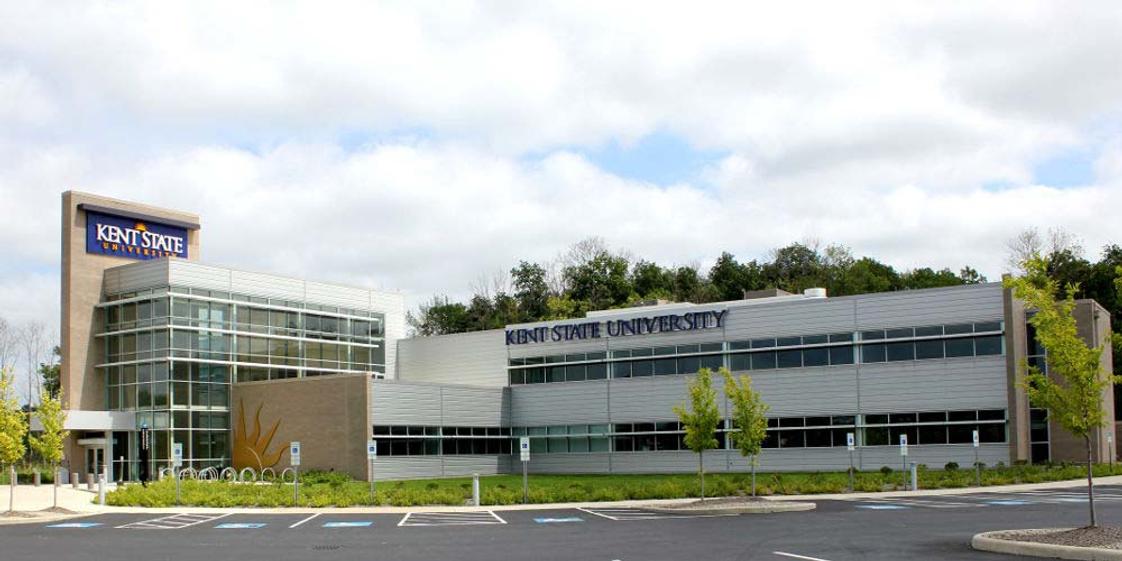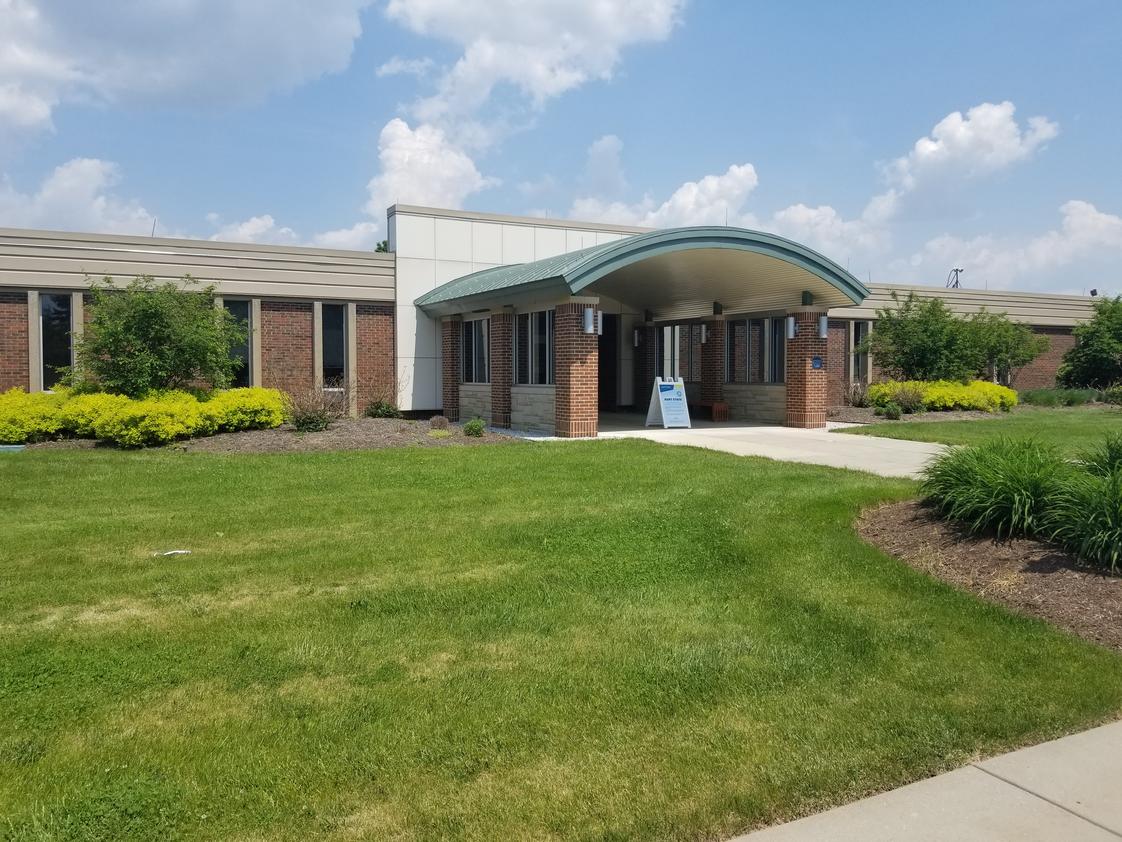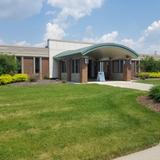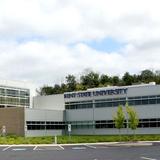- Kent State University at Geauga, located in historic Burton, Ohio serves Geauga County as well as Summit County with the Twinsburg Academic Center. As Geauga County`s only institution of higher education, Kent State Geauga plays a vital role in generating a more educated workforce, attracting and retaining qualified individuals to the area, and contributing to the positive economic development of the region. Kent State Geauga enrolls approximately 2,200 students year-round and offers more than 20 degree programs, including nursing, information technology, business management, psychology, and English, that can be completed in their entirety at the two locations. Taking courses at a regional campus also provides students the opportunity to begin coursework in more than 282 undergraduate degree programs at Kent State University.
School Highlights
Kent State University at Geauga serves 3,513 students (11% of students are full-time).
The college's student-teacher ratio of 33:1 is higher than the state community college average of 22:1.
Minority enrollment is 23% of the student body (majority Black), which is less than the state average of 38%.
Quick Facts (2026)
- Enrollment: 3,513 students
- In-state tuition: $6,561
- Out-state tuition: $15,437
- Student-teacher ratio: 33:1
- Minority enrollment: 23%
- Source: Verified school update
Top Rankings
Kent State University at Geauga ranks among the top 20% of public schools in Ohio for:
Category
Attribute
Community Size
School Overview
The teacher population of 108 teachers has stayed relatively flat over five years.
Kent State University at Geauga
(OH) Community College Avg.
Carnegie Classification
Baccalaureate/Associate's Colleges: Associate's Dominant
Baccalaureate/Associate's Colleges: Mixed Baccalaureate/Associate's
Institution Level
Four or more years
At least 2 but less than 4 years
Institution Control
Public
Private not-for-profit
Year Founded
1964
Total Faculty
108 staff
93 staff
School Calendar
Student Body
The student population of Kent State University at Geauga has grown by 41% over five years.
The student-teacher ratio of 33:1 has decreased from 35:1 over five years.
The Kent State University at Geauga diversity score of 0.39 is less than the state average of 0.58. The school's diversity has declined by 11% over five years.
Total Enrollment
3,513 students
757 students
Student-Teacher Ratio
33:1
22:1
# Full-Time Students
397 students
397 students
# Part-Time Students
3,116 students
360 students
# Enrollment Undergraduate
351 students
313 students
# Full-Time Undergraduate Students
397 students
385 students
# Full-Time Graduate Students
n/a
10 students
# Part-Time Undergraduate Students
3,116 students
434 students
# Part-Time Graduate Students
1 students
3 students
Total Dormitory Capacity
n/a
425 students
% American Indian/Alaskan
n/a
n/a
% Asian
2%
4%
% Hispanic
4%
6%
% Black
11%
15%
% White
77%
62%
% Hawaiian
n/a
2%
% Two or more races
3%
4%
% Non Resident races
1%
1%
% Unknown races
2%
6%
Diversity Score
0.39
0.58
College Completion Rate (Students who graduate in less than 4 years)
8%
23%
College Completion Rate (Students who graduate in 4 years or more than 4 years)
16%
22%
Average Graduate Earnings (10 Years)
$39,700
$31,900
Tuition and Acceptance Rate
The public in-state tuition of $6,561 is more than the state average of $5,163. The in-state tuition has grown by 5% over four years.
The public out-state tuition of $15,437 is more than the state average of $10,843. The out-state tuition has stayed relatively flat over four years.
In-State Tuition Fees
$6,561
$5,163
Out-State Tuition Fees
$15,437
$10,843
Tuition Notes
Cohort tuition rate for 12-18 credit hours for the academic year
% Students Receiving Some Financial Aid
78%
88%
Median Debt for Graduates
$25,000
$18,500
Median Debt for Dropouts
$8,750
$6,500
Acceptance Rate
n/a
73%
SAT Reading
n/a
460
SAT Math
n/a
475
SAT Writing
n/a
465
ACT Composite
n/a
21
ACT English
n/a
20
ACT Math
n/a
20
Extracurriculars
Total ExtracurricularsTotal Extra-curric.
8 extracurriculars
ExtracurricularsExtra-curric.
Club or Organization:
Artists UniteeSports
Geauga GardnersGeauga Student Nurse Association
Media ClubNational Student Nurses Association (Twinsburg)
Undergraduate Student GovernmentWellness Club
Source: 2024 (or latest year available) Integrated Postsecondary Education Data System (IPEDS) , School Administrators
School Notes
- Since its founding as a teacher-training school in 1910, Kent State has become an engine for economic, cultural and workforce development in the region and beyond as one of the premiere Ohio colleges. The university also has earned acclaim for applying new knowledge to address the needs of the communities it serves and society as a whole. Kent State Geauga is the only institution of higher learning in Geauga County. Kent State's Geauga Campus lies at the heart of Ohio's maple syrup country and provides easy access to urban, suburban and rural areas. In 2013, Kent State University Geauga Campus opened a satellite location in Twinsburg, Ohio.r. Kent State Geauga and the Twinsburg Academic Center offers an array of noncredit programs and workshops for the student looking to continue their education, to include a wide range of certificate, associate, and bachelor degree programs. We also offer the first two years of coursework applicable toward all of the 282 academic programs available at Kent State University. It also features an excellent 26:1 student/teacher ratio, distance learning libraries, and technology components in many of our classrooms to enhance students' learning experiences. It offers excellent nursing degree programs (to include the associate and bachelor degree), business management/administration, accounting, information technology, middle childhood education and more.
Frequently Asked Questions
How much does Kent State University at Geauga cost?
Kent State University at Geauga's tuition is approximately $6,561 for In-State students and $15,437 for Out-State students.
What is Kent State University at Geauga's ranking?
Kent State University at Geauga ranks among the top 20% of community college in Ohio for: Largest student body.
Recent Articles

5 Key Community College Trends Parents Should Know in 2026
Explore major 2026 community college trends including enrollment changes, costs, career programs, and affordability for parents planning college decisions.

Average Community College Tuition Cost 2026 Update
Explore updated 2026 community college tuition averages, cost trends, planning tips, admissions timing advice, and financial strategies for families and students.

Preparing for Placement Tests in 2026: Student Guide
Preparing for Placement Tests in 2026, what students, parents, and educators need to know about formats, prep strategies, and placement changes.















